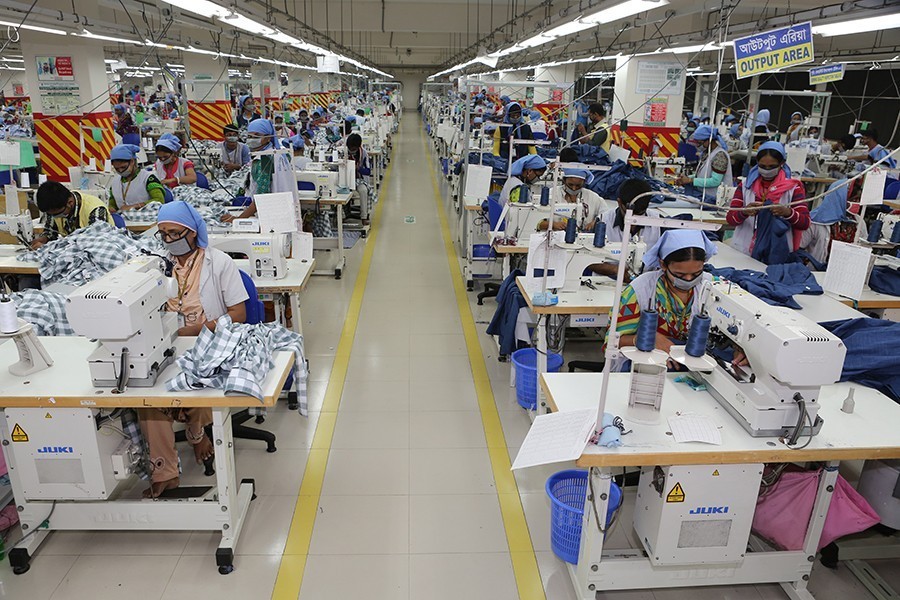The global market share of locally made readymade garments could reach 10 per cent by 2025 if steps are taken to increase competitiveness, reduce lead time and attract investment in backward-linkage industry.
The industry also needs a stable policy supports, especially financial, tax and duty-related ones, from the government to retain its competitiveness and create an investment-friendly environment.
Bangladesh Garment Manufacturers and Exporters Association (BGMEA) president Faruque Hassan made the remarks at a press conference on Saturday while announcing that the 37th IAF World Fashion Convention will be held in Dhaka in November.
Simultaneously, the 'Made in Bangladesh Week' will be held in Dhaka from November 12 to 18.
The International Apparel Federation (IAF) in collaboration with the BGMEA and the Bangladesh Knitwear Manufacturers and Exporters Association (BKMEA) will organise the Convention.
"Despite all odds, our RMG exports might surpass US$41-billion mark at the end of current fiscal year. Besides, our global share might reach 7.5 per cent by 2022 and 10 per cent by 2025," said the BGMEA chief.
Explaining the odds, he said Russia-Ukraine war, possible economic recession in major markets like the European Union and the rising inflation might dent the demand for apparel.
Though exporters are concerned over the issues, they should focus on how to enhance their competitiveness and create new opportunities, he added.
Mr Hassan said Bangladesh RMG's global market share has been over 6.0 per cent for the last few years while the growth is encouraging as entrepreneurs have made huge investments in production upgradation, backward-linkage industries and skills development.
The market share would further increase to 10 per cent by 2025, he said, urging the government to continue the existing policy supports for at least next five years.
He also called on the exporters to take measures to enhance competitiveness, reduce lead time, save costs and focus on product diversification, innovation, technology upgradation, enhanced skills and branding. The traditional model they are following might not help achieve the desired growth, he added.
About the Convention, the BGMEA president said the three-day annual convention will bring together the IAF members, representatives of apparel industry associations from 40 countries and leading brands and other stakeholders.
The BGMEA will organise the 'Made in Bangladesh Week' with an aim to promote the apparel industry of Bangladesh locally and globally by showcasing the compelling stories of the ready-made garments sector, especially its impressive strides in the areas of workplace safety, environmental sustainability and workers' wellbeing.
Mr Hassan said, "As we have achieved a certain level of growth and momentum, it is now time for us to leapfrog to the next level of growth."
"Our progress and prospects have made us one of the most sustainable sourcing partners to the west and we have to work harder for safeguarding it," he said.
Speaking at the conference, IAF Secretary General Matthijs Crietee said, "Perhaps more than ever before garment manufacturers play a pivotal role in the industry transformation we all need. So, on the international stage presented by the 37th IAF World Fashion Convention, the Bangladeshi apparel industry will show itself as a source of solutions to the industry's current major challenges."


